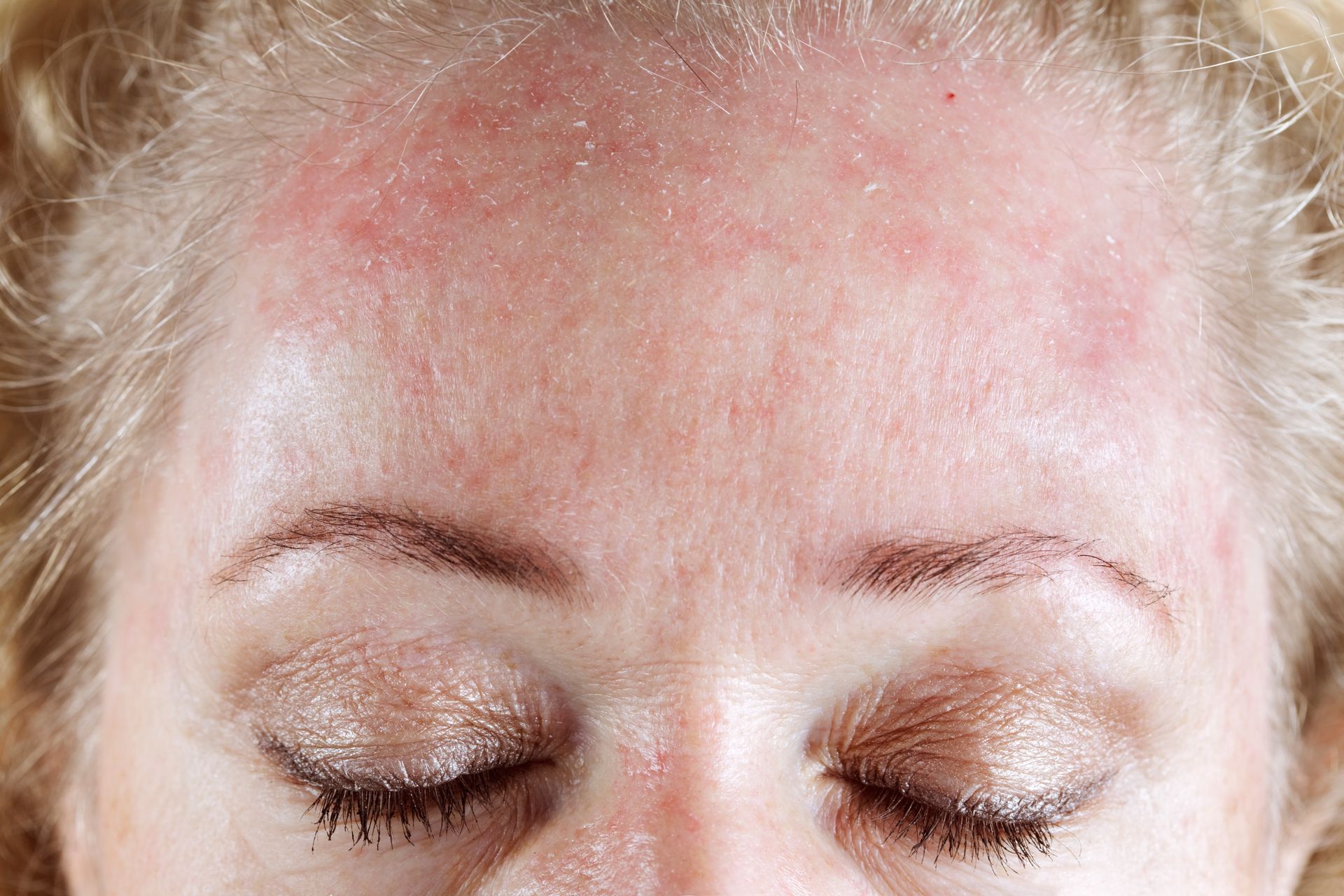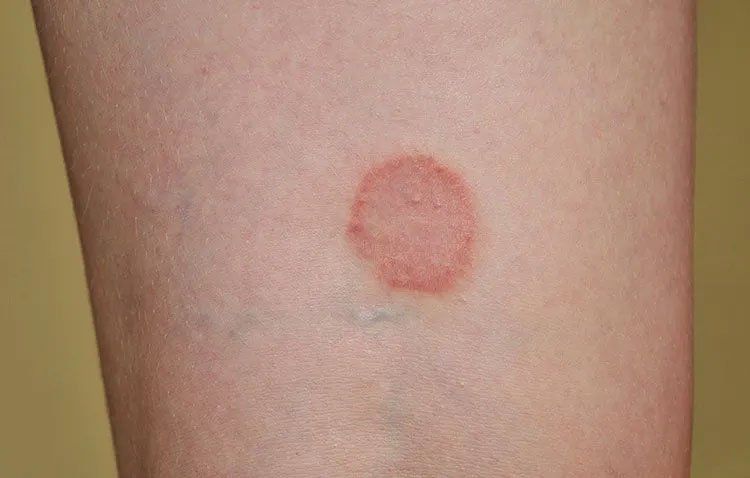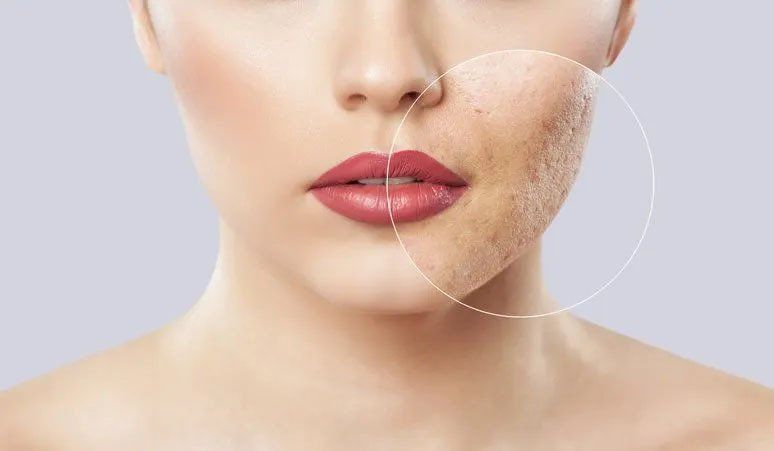Lupus, Your Skin, and the Practitioners Who Can Help
June 11, 2020
Lupus, Your Skin, and the Practitioners Who Can Help
Lupus is an autoimmune disorder. If you have lupus, your immune system targets your tissue and organs. Unfortunately, you may suffer from skin rashes as your immune system attacks your skin. In fact, skin problems occur in 66 percent of patients with lupus, as noted by the Lupus Foundation of America. Fortunately, a dermatologist can help you combat the skin issues that arise from this disorder.
Lupus and Your Skin
As your immune system attacks your body, you may develop skin issues, such as the telltale sign of a butterfly-shaped rash on your face. This rash bears the resemblance of an open-winged butterfly across your cheeks. This particular rash covers the bridge of your nose in addition to your cheeks. However, not all individuals who have lupus have the butterfly rash.
In other cases, you may develop round lesions on your head and face. Sometimes, red, scaly patches appear. Other times, you may develop a rash that looks flat and resembles sunburn. Red, black, or purple spots can arise on your toes and fingers while small, red spots can occur on your legs. You can develop mouth or nose sores as well.
The sun has the potential to irritate your condition. You may develop ring-shaped lesions on parts of your body from sun exposure. Sometimes, current skin rashes worsen when you expose them to the sun. The sun exasperates skin issues in 40 to 70 percent of patients, according to the Lupus Foundation of America.
Process of Diagnosing Lupus
The first practitioner you usually see if you suspect you have lupus is your primary care physician. They can perform an initial evaluation and guide you through the rest of the process for diagnosing lupus. Typically, your primary care physician refers you to a rheumatologist if they suspect that you have lupus. This specialist focuses on the muscles and joints and can determine if your symptoms arose from lupus.
Although a rheumatologist assists with the management of your condition, this doctor may recommend other specialists to address issues related to other parts of your body. For instance, they may refer you to a dermatologist if you have skin issues as a result of lupus.
Diagnosis and Treatment From a Dermatologist
Once you receive a referral to a dermatologist, you can figure out if your skin issues have a connection with your lupus.
Diagnosing Lupus Lesions and Rashes
A dermatologist evaluates your skin visually. The practitioner conducts a visual analysis of any rashes or lesions you have. Your specialist evaluates the inside of your mouth and nose for sores. Your dermatologist also asks you to fill out a medical history report and asks you about any medications you take.
After the visual examination and medical history analysis, your dermatologist may use a microscope to further examine the rash or lesions. This process is known as a biopsy and consists of your practitioner taking a small tissue sample of the affected area for examination.
Treating Lupus-Related Skin Problems
Some possible courses of action a dermatologist takes to help you control your lupus-related skin problems include patient education, lifestyle changes, and medications. From your doctor, you may learn how to properly manage your skin problems through lifestyle changes and at-home remedies.
Examples of possible medications a dermatologist prescribes to lupus patients include:
- Corticosteroids
- Anti-malaria drugs
- Immunosuppressants
- Steroid-sparing medications
Lupus commonly attacks the skin of individuals it affects. As skin issues emerge, you may feel selfconscious. You don't have to, though, since a dermatologist can reduce your skin-related lupus symptoms through medications and at-home care.
Schedule an appointment with Spartanburg Dermatology & Skin Surgery Clinic, P.C., if you have skin problems related to lupus or any other immune disorder that affects your skin.

Your body is protected by your skin, which helps prevent damage to internal tissues and infection. However, the skin isn't impervious to disease and infection, and skin conditions are common at all stages of life. If you would like to learn more about your skin, check out these four skin diseases and conditions that are common in adults.
Skin tags develop in almost one-half of the adult population. While these elevated skin growths don't pose any significant health hazards, they can prove both uncomfortable and embarrassing, depending on their location. Fortunately, a qualified dermatologist can remove your unsightly skin tags safely and easily.
Lines around the eyes are almost impossible to hide. Makeup can sometimes make them more noticeable, and sunglasses are not acceptable to wear everywhere. A more effective solution is to learn the little habits that cause the lines to begin or worsen existing wrinkles. Additionally, use these four inexpensive and easy ways to reduce the risk of crow's feet and fine lines.

Skin cancer is the most common cancer in the United States, affecting one in five people in their lifetime, according to the American Academy of Dermatology. While some types of skin cancer can be treated effectively, other types, particularly melanoma, can often be fatal. Take steps to prevent skin cancer and reduce your risk.












